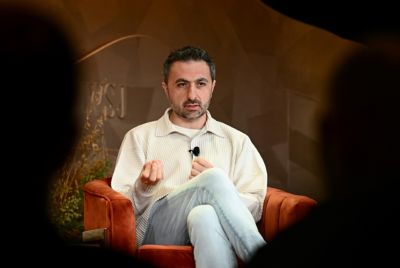Insiders Worry Microsoft's AI Future Hitched To OpenAI's Wagon
Microsoft is reportedly nicknamed the "IT department" for OpenAI

There are growing concerns among some Microsoft insiders that the company's AI strategy overly relies on its partnership with OpenAI; this has resulted in the company being nicknamed the "IT department" for OpenAI, which is reportedly gearing up to challenge Google's search dominance by launching its search engine.
Following a recent Business Insider exclusive where Microsoft insiders offered their unfiltered opinions on the company's AI direction and the new Copilot tools, comments have surfaced expressing concerns about the software giant turning into a glorified IT department for the Sam Altman-led AI startup.
According to a new report, OpenAI is creating a search engine to rival Google 👀
— Mukul Sharma (@stufflistings) February 15, 2024
- The search engine may leverage Bing’s search capabilities 💪
- OpenAI’s search engine is still under development, but it could potentially challenge Google’s dominance in the search market 💥
- It… pic.twitter.com/Mc5COKI9py
Leading the charge for Microsoft's AI strategy is the AI Platform team, which Eric Boyd spearheads. This team falls under Scott Guthrie's Cloud + AI organisation. Microsoft's AI Platform team, which initially boasted an impressive array of internal AI projects, has undergone a radical overhaul.
Internal concerns arise over Microsoft's reliance on OpenAI
The team has deviated from its focus on the OpenAI partnership. This change has triggered the departure of some executives who had worked on Microsoft's in-house AI initiatives. Insiders accused the Redmond-based tech giant of not focusing enough on the internal services that developed Azure AI Services.
Instead, insiders say, the company focuses more on the Azure OpenAI service. Shedding some light on this unsolicited strategic shift, a former executive said that once-prominent products like Azure Cognitive Search, Azure AI Bot Service and Kinect DK have vanished.
However, Microsoft spokesperson Frank Shaw clarified that these services haven't entirely disappeared but have been:
- Migrated from the Azure AI organisation
- Renamed for better alignment
- Incorporated into broader product offerings
"The former Azure AI is basically just tech support for OpenAI," a former Microsoft executive said. "Eric Boyd is effectively maintaining the OpenAI service. It's less of an innovation engine than it once was. Now, it's more IT for OpenAI. The beating heart of innovation is elsewhere."
This person added, "It's not very innovative, but it's a good business strategy." They asked not to be identified discussing sensitive matters.
The tight integration between Microsoft and OpenAI, which extends beyond the Azure OpenAI service, is evident. Many developers have been dedicated to supporting Microsoft Azure customers using OpenAI's GPT models.
This collaboration extends to physical access, with some Microsoft employees having badge access to OpenAI offices and vice versa. Despite internal concerns, Shaw remains optimistic about their AI offerings.
The Microsoft spokesperson highlighted customer satisfaction with the company's AI tools, even in their early stages. Shaw emphasised, "We're the ones delivering this," underlining Microsoft's role in bringing these AI tools to market in a tangible way.
Interestingly, OpenAI updated its website to list Microsoft as a minority owner last year.
© Copyright IBTimes 2025. All rights reserved.






















